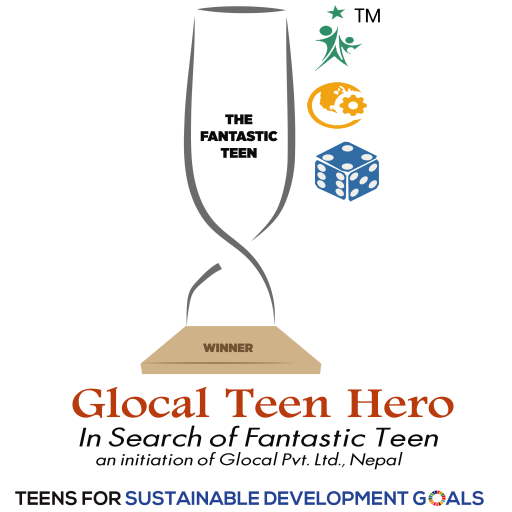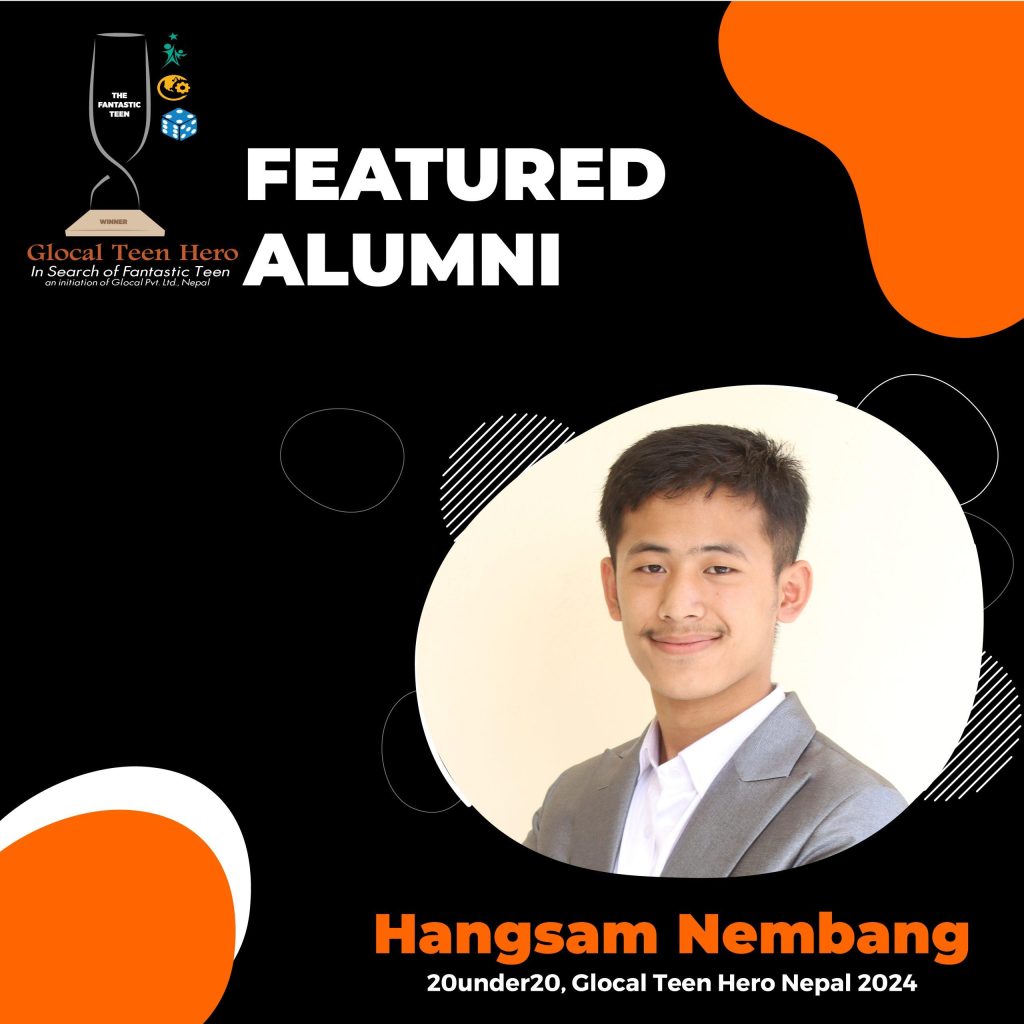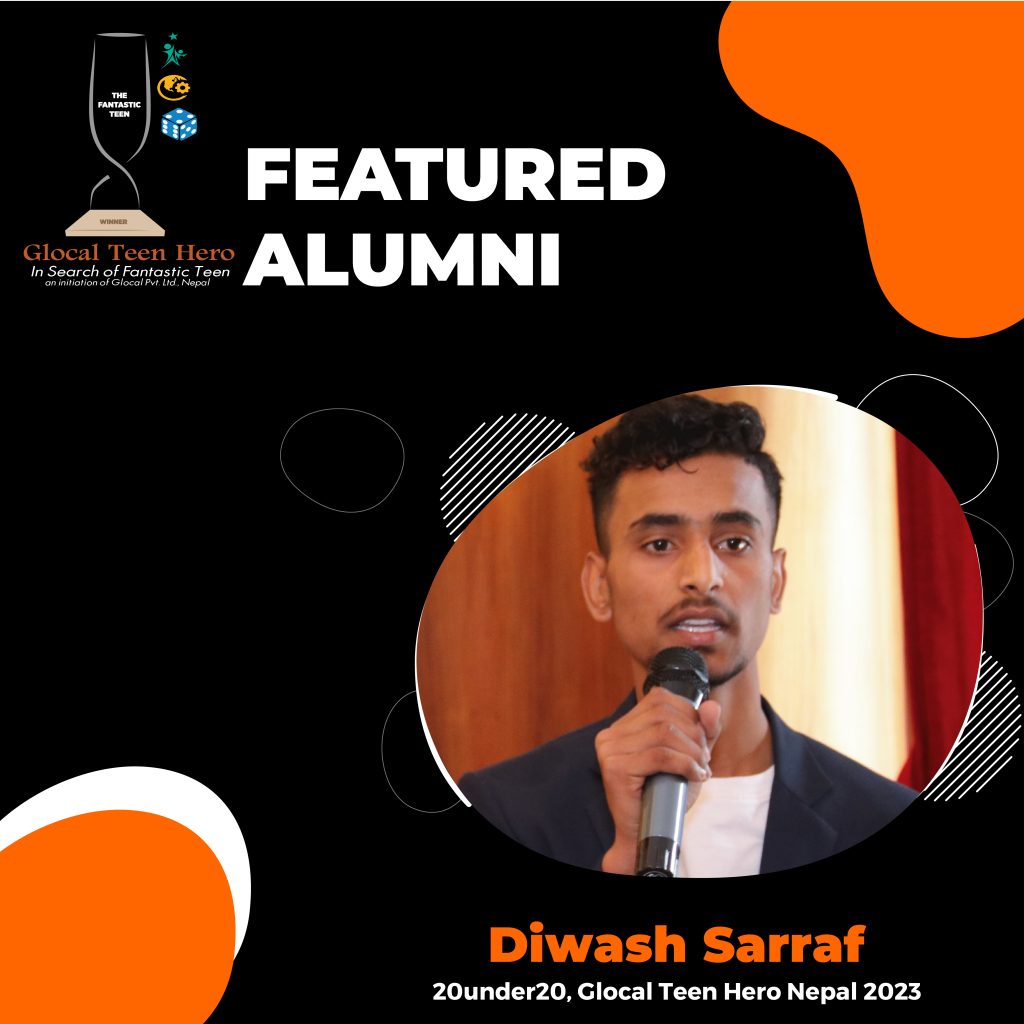Amrit Rijal is a young child rights activist and climate activist from Nepal. He is now the head of the Nepal Youth Network For Sustainable Development Goals District Committee Sunsari and the country director of the World Youth Organisation. He is also the originator of the “1000 hands, 500 trees” initiative.
Amrit has been a notable leader in the field of child rights for over five years. Amrit is most recognized for his work as a facilitator for child-friendly local government, but he has also made contributions to ending child violence, youth leadership, and campaigning for climate action. In ‘The Himalayan Times,’ he has already been profiled in the millennial teen section. Amrit worked as a radio host at radio pariwartan 89.4MHZ and spoke about various topics there. He believes in the power of diversity and aspires to create a Nepal that is both safe and welcoming to children.
Amrit is one of the Speakers for the “Socio-perspective Panel” at Wai Wai Presents Glocal International Teen Conference, 2021. To Know more about him, below you can read his inspiring stories; which has definitely brought a big impact nationally and Internationally.
When did you realise that you should work for the children?
I started working for social change when I was 13. We were among the many children in our neighborhood who were quite engaged and always aspired to work for social change. We created a community child club during the Tihar festival in the year 2071 B.S. The club was formed as a passion driven initiation. We were confined to our community where we conducted certain programs related to environmental cleanliness, talent blossoming, and celebrating festivals with the childrens of the community because there were no broad concepts about child friendly government, child protection, or meaningful child participation here in Itahari at the time.
Fortunately, I attended a school that values the development of students’ capacity and abilities. I worked as the secretary for a child club that was created within the school for the benefit of the children. I joined Hamro Aawaz Bal Sanjal in 2072 BS. The child club network was a watershed moment in my life, and I consider it to be the official start of my career. I had the opportunity to look at society more closely, and I observed a lot of issues. I never imagined that an urban area like Itahari would have such a high rate of child marriage. I grin when I recall those days, particularly the day when I first handled a child abuse situation and sent the child to boarding school, paying his school tuition with the contribution of local political leader.
A single occurrence never made me realize I needed to work for children; rather, each and every action I performed for the welfare of children made me realize I needed to work for children. When I realized that my passion-driven activism was also a passion-cause driven activism, I decided to work for children.
What were the difficulties that you experienced in your journey?
Changing the world can often seem like a job that’s too big to take on by ourselves and it’s not uncommon to feel confused about where to start. Sometimes I felt as though I didn’t have the time or resources to make a noticeable difference and there was no one to guide me. Working as an activist is never an easy task, you are the one challenging society and trying to bring out something better. It needs a lot of courage; courage to face the society, courage to challenge the dogma and dedication to bring a change. Until you don’t come to a level of appreciation from society, your parents are also not that supportive. They felt like I was going away from my studies and ruining my future but my mother has always been positive towards my work and I credit her for who I am now. When I stepped out of my comfort zone, it was never easy for me. I was working as a child rights activist and a very worse mentality I went through is; Children are clueless. They don’t have a voice and if they do then it should be shut down. Being a child doesn’t mean our voices are less credible. It’s okay if we are not involved in the decision making for an adult person but it’s our right to get involved in the decision making for us. It was always difficult to move people to action; Child Rights was thought to be only the concern of children. Though we had plans, policies and acts, implementation was always difficult due to ignorance. Participation was considered but just for the formality. Children’s voice was not prioritized in decision making which always brought difficulty in working. Fear among children was also a problem. Children lack courage to raise their voice, they fear sharing their problems. Hence, it was very difficult to analyse the problem and take necessary actions. Now it’s not the same. Above mentioned challenges are reduced to some extent but not as much as they should.
Your current involvement?
We all are living an extreme new life than the life we had before covid. Human community is being endangered and we are safely staying at home. My five year long activism life has got a new methodology and I am able to work for something great. Saw a lot of peaks and turns. From the economic crisis to stop in education and exposure to an extremely new environment with absolutely good opportunities I was able to work not just for child rights but also for youth empowerment.
Founded a campaign named ‘Lakshyadeep’. Lakshyadeep aims to enhance co-curricular activities among the teenagers and youths of province 1. We mainly aim to focus on building equity between the students outside the valley and of the valley. As a student studying inside the valley, I found that there’s a huge difference in opportunities, learning and almost everything here and out, so to contribute and uplift the students’ status in my district I came up with an idea of Lakshyadeep. We have already introduced some of the popular and new topics like colloquium, WSDC Debate, fundamental writings, your prospect to a literature and many more. Different schools, colleges, and students are appreciating this cause.
Information Technology has given us many opportunities to learn new things, meet new people, find out about new places and many more but without proper information or guidance we may face various risks like abuse and exploitation and violence in the internet world. In order to use the internet safely we need to understand how our activities on the Internet affects us. With the aim of child safety on the internet and ease post pandemic we launched Internet for good and coping with the new normal webinars.
With me and my work child rights and child friendly local governance always comes there. As the lead facilitator led the municipal child conference 2078, took part in budget formulation for childrens in local level, wisely solved and reported some child marriage, child exploitation and child abuse case. In some aspects Covid was luckier for me, I was able to represent Nepal in some of the great platforms as country director in World Youth Organization, ambassador at Chaeli Foundation USA and also working with the office of UN secretariat representative on violence against children under #CovidUnder19 project as a peer mentor.
What motivated you to become a child rights and climate activist?
Initially, it was a passion driven activism. I wanted to create an impact in society and work for betterment. I was passionate about creating a society where diverse children form united groups. While working for children I came to know my actual interest and started exploring myself. I started learning and teaching simultaneously, experiencing socialization. While working for children we need to be close to the society where I realise climate action and impact of climate change on children is also a major problem here. I believe self realisation is one of the greatest motivating factors for me. I have developed a sense of responsibility towards society and nature. I feel satisfied and immensely joyful while working for a cause.
Apart from this, you are a role model for many others. You are their epitome, their idol, and your work is recognized and appreciated. You meet new people, expand your network, and meet smart colleagues, which has always encouraged me.
What is your future plan?
I am a high school graduate student now and after some years I see myself working to secure my future and contribute to a great change. I am very interested in pursuing a bachelor’s degree in health and medical. My initial aim after finishing my bachelor’s degree, which will be approximately five years later, is to serve in rural parts of Nepal. I intend to work for child survival and protection in partnership with several international non-governmental organizations in the health sector.
In addition, I aim to work as a part-time teacher. Teaching has always been a passion of mine, and I am confident that I can be the finest instructor. I hope to leverage my knowledge and capacity to do whatever I can to help the world become a better place. I hope to fully utilize the opportunities that I get and be able to influence more. I intend to continue advocating for good health and well-being, decent education, reduced inequality and child rights. I also dream of becoming an influencer both socially and in social media.


